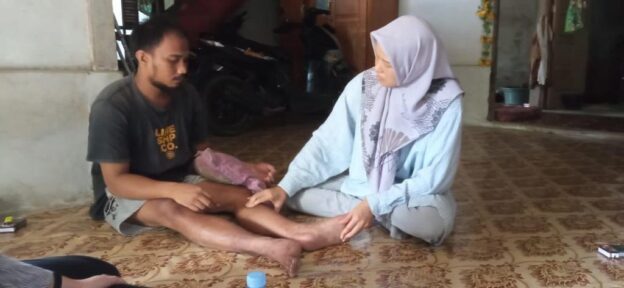SEEDS partner, Pendar Pagi, is committed to seeing the skills and expertise of volunteers and staff used to empower the realisation of SEEDS’s goals in their local community. With the recent addition of a Physio and Occupational Therapist to the task force, market research has begun in relation to home therapy services. Anecdotes of neighbours and friends indicates that families struggle to care for loved ones upon discharge from hospital or after adverse health events. The patients also struggle to realise their full recovery potential due to limited rehabilitation services. Providing in-home rehabilitation services is something that both our therapists are familiar with from their work experience in Australia, and are eager to apply their knowledge in this new context.


This initiative will aid not only the patient, but also their support network, by educating carers about safe manual handling techniques and training them to facilitate rehabilitation exercises with their loved ones. Home therapy is designed to increase the independence of the patient, which in turn helps alleviate the burden of care on the family. Within their home environment, the patient’s needs can be assessed and therapy services can be targeted to facilitate re-engagement in everyday activities.
Beyond providing the necessary therapy to assist patients with their rehabilitation, there is the opportunity to reduce the burden on the health system by educating patients and their families regarding lifestyle and preventable factors that contribute to disease and mortality such as smoking, diet and exercise.
Currently, our therapists are still in the process of meeting SEEDS language requirements. However, there have been opportunities for them to voluntarily meet with stroke survivors, alongside their language helpers, to assist with the stroke patients’ rehabilitation as well as further their language learning. One such gentleman lives in a village forty minutes from Pekanbaru. The opportunity to visit this young man has greatly enhanced the therapists’ medical terminology and provided him with appropriate exercises for rehabilitation. Since their visits, the young man has begun dressing and showering independently. This has lowered his care needs and increased his sense of self-efficacy. Our hope is that this service will be made available to a much larger community of people following continued market research and the establishment of this new initiative.

